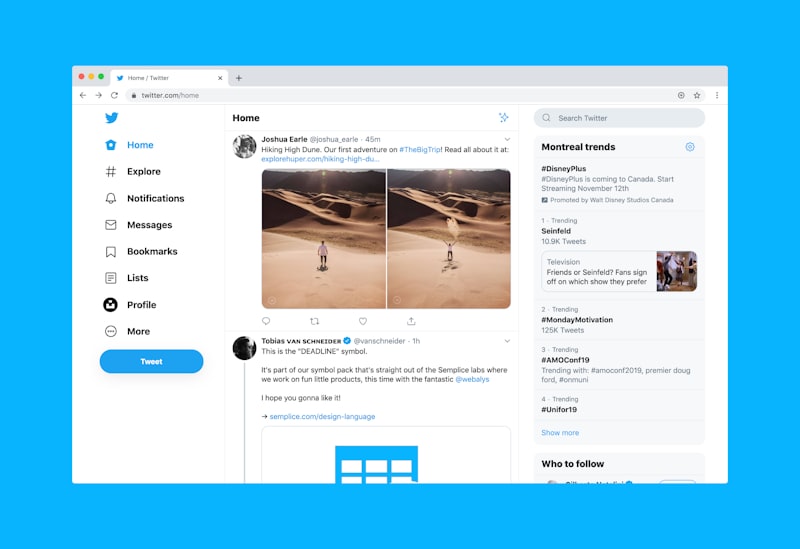
Quantum Internet harnesses the principles of quantum mechanics to transmit information. Unlike classical bits that are either 0 or 1, quantum bits (qubits) can exist in multiple states simultaneously, thanks to a phenomenon called superposition. This means qubits can encode and process significantly more information than classical bits in the same amount of time.
One of the most mind-bending aspects of Quantum Internet is its potential for ultra-secure communication. Through a process known as quantum key distribution (QKD), information can be transmitted with cryptographic keys that are theoretically unhackable. Any attempt to intercept these quantum keys would disrupt their delicate quantum state, immediately alerting both sender and receiver to a security breach.
But Quantum Internet isn’t just about security; it also promises unparalleled computing power. Quantum computers, interconnected via Quantum Internet, could solve complex problems in seconds that would take classical computers millennia. From optimizing supply chains to discovering new drugs, the implications for fields like artificial intelligence and cryptography are vast.
Despite its promise, Quantum Internet is still in its infancy. Researchers face significant challenges in scaling up quantum networks, maintaining qubit coherence over long distances, and developing practical quantum repeaters to extend network reach. These hurdles, however, have not dampened the enthusiasm of scientists and tech visionaries who foresee a future where Quantum Internet is as ubiquitous as WiFi.
As we navigate this frontier of technology, one thing is clear: Quantum Internet has the potential to transform society, from how we communicate and collaborate to the very nature of privacy and security. The journey to realizing this potential will require perseverance, innovation, and a willingness to embrace the unknown. So, are we ready to step into a quantum future?
Unlocking the Future: How Quantum Internet Could Revolutionize Communication
Quantum Internet isn’t just about speed; it’s about security too. Traditional internet relies on cryptographic methods that could potentially be breached by advanced computing power. Quantum Internet, however, leverages the principles of quantum mechanics to ensure data security through quantum encryption. This means data transmitted through Quantum Internet would be virtually unhackable, protected by the laws of quantum physics itself.
But how does Quantum Internet achieve this? Unlike classical bits that are either 0 or 1, quantum bits or qubits can exist in multiple states simultaneously thanks to a phenomenon called superposition. This property allows for exponentially faster processing and transmission of information, making Quantum Internet potentially thousands of times faster than current broadband speeds.
Moreover, Quantum Internet could enable instant communication over vast distances through quantum teleportation. Yes, teleportation isn’t just for sci-fi anymore! It involves the transfer of quantum states between particles separated by large distances. This could lead to instantaneous transfer of information, which would be revolutionary for fields like telemedicine, finance, and beyond.
Another fascinating aspect of Quantum Internet is quantum entanglement. When particles become entangled, their states are correlated, no matter the distance between them. Changes to one particle instantly affect the other, which could enable incredibly precise and secure communication channels.
From Science Fiction to Reality: Quantum Internet Breakthroughs on the Horizon
Quantum internet is not your everyday internet upgrade. It leverages the principles of quantum mechanics to enable communication that is faster, more secure, and more efficient than ever before. Unlike traditional internet where information is carried in bits (binary digits of 0s and 1s), quantum internet uses qubits. These qubits can exist in multiple states simultaneously thanks to a property called superposition, allowing for a vast increase in processing power and speed.
One of the most mind-bending aspects of quantum internet is its potential for ultra-secure communication. Traditional encryption methods rely on mathematical complexity, which can potentially be cracked given enough time and computing power. Quantum communication, however, relies on the principle of quantum entanglement. This means that any attempt to eavesdrop or intercept data would disrupt the delicate quantum state, immediately alerting both sender and receiver to the security breach.
But how close are we to seeing quantum internet in our daily lives? Researchers have successfully transmitted quantum information over long distances using fiber-optic cables and even through space via satellites. These breakthroughs pave the way for a future where quantum networks span the globe, connecting not just people and devices, but also quantum computers and sensors in a seamless web of information exchange.
Just like the early days of the internet, quantum internet is poised to redefine technology as we know it. It holds the potential to accelerate advancements in fields such as artificial intelligence, medicine, and environmental science. Imagine instant access to vast amounts of data for complex simulations or real-time monitoring of environmental changes on a global scale.
While practical quantum internet for everyday use is still on the horizon, the rapid pace of research and development suggests that this futuristic technology may soon become a reality. As scientists continue to push the boundaries of what’s possible, one thing is clear: the age of quantum internet is approaching, and with it, a new era of connectivity and innovation.
Securing the Unseen: Quantum Internet’s Promise in Cybersecurity
Unlike the traditional internet, which relies on bits represented as 0s and 1s, quantum networks leverage quantum bits or qubits. These qubits can exist in multiple states simultaneously, thanks to the principles of quantum mechanics. It’s like having a key that can unlock countless doors at once, making current encryption methods look like child’s play.
One of the most awe-inspiring features of quantum internet is its ability to achieve “quantum entanglement.” This phenomenon allows qubits that are entangled to be interconnected in a way that the state of one qubit instantly influences the state of another, regardless of the distance between them. It’s akin to having a pair of magical dice that always roll the same number, no matter how far apart they are.

This interconnectedness holds profound implications for cybersecurity. Imagine transmitting sensitive information across quantum networks where any attempt to eavesdrop or intercept data would be immediately detected. It’s like sending a message sealed in an unbreakable box that can’t be opened without leaving visible marks.
Moreover, quantum internet promises secure communication channels that are resistant to hacking—a game-changer in the cybersecurity landscape. Current encryption methods could potentially be rendered obsolete, replaced by quantum cryptography that relies on the fundamental laws of physics rather than mathematical complexity.
However, despite its immense potential, the quantum internet is still in its infancy. Scientists and researchers are working tirelessly to overcome significant technical challenges, such as maintaining qubits’ delicate quantum states over long distances and developing reliable quantum repeaters.
Quantum Leap: Paving the Way for Ultra-Fast Internet Connections
Picture this: you’re streaming your favorite show in 8K resolution without a single buffer, downloading massive files in seconds, and engaging in seamless video calls with zero lag. Sounds futuristic, right? Well, that future might be closer than you think, thanks to the pioneering work in quantum computing and communication.
Quantum mechanics, a field once confined to theoretical physics, is now on the brink of transforming our digital lives. Quantum computing, with its mind-boggling ability to process information at unprecedented speeds, holds the key to unlocking ultra-fast internet connections. Traditional computers operate on bits, which represent information as either 0 or 1. Quantum computers, on the other hand, use qubits, which can exist in multiple states simultaneously due to the principles of quantum superposition and entanglement.
This leap in computing power translates directly into faster data transmission and encryption, paving the way for internet speeds that could potentially be millions of times faster than what we have today. Imagine downloading entire libraries of movies in the blink of an eye or conducting real-time, high-definition virtual reality experiences without any latency issues.
But it’s not just about speed; quantum technology promises unparalleled security as well. Quantum cryptography offers encryption methods that are virtually unhackable, leveraging the quantum properties of particles to secure data in ways that were previously thought impossible.
As researchers and engineers continue to push the boundaries of quantum mechanics, the prospect of ultra-fast internet connections becoming a reality grows ever nearer. The race is on to harness these quantum leaps and usher in a new era of connectivity that will redefine how we work, play, and interact in the digital age.
Quantum Entanglement: The Key to Unhackable Communication Networks
Quantum entanglement holds the potential to revolutionize communication networks as we know them today. Unlike traditional encryption methods that rely on mathematical algorithms, which could theoretically be cracked given enough computing power, quantum communication is inherently secure. This is because any attempt to eavesdrop on quantum entangled particles disrupts their delicate state, immediately alerting the sender and receiver to the breach.
To grasp the significance of this, think of quantum entanglement as a cosmic dance where particles are paired like celestial partners. When one particle pirouettes, the other responds instantaneously, regardless of the cosmic distance that separates them. This phenomenon forms the basis of quantum key distribution (QKD), a technology that promises unbreakable encryption keys for transmitting sensitive information.
In practical terms, quantum entanglement allows for the creation of communication networks where data security is not just a priority but a fundamental guarantee. Whether it’s safeguarding military communications, protecting financial transactions, or ensuring the confidentiality of personal data, quantum entanglement offers a level of security that was once relegated to science fiction.
As researchers delve deeper into harnessing the potential of quantum entanglement, the possibilities for its application continue to expand. From quantum satellites enabling secure global communication to quantum networks linking cities and countries in a web of unhackable data exchange, the future of communication is poised for a quantum leap.
Global Connectivity Redefined: Quantum Internet’s Impact on Worldwide Data Transfer
In the current landscape of digital communication, data transfer faces limitations in speed, security, and capacity. Traditional internet protocols rely on binary bits that can either be a 0 or a 1, limiting the amount of information that can be transmitted at once. This has led to bottlenecks in high-demand scenarios such as streaming services, cloud computing, and global financial transactions.
Enter the Quantum Internet, a marvel of modern science that harnesses the principles of quantum mechanics to revolutionize data transfer. Unlike traditional methods, which transmit data using binary code, quantum networks use qubits. Qubits can exist in multiple states simultaneously, exponentially increasing the amount of information that can be transmitted instantaneously.
One of the most groundbreaking aspects of the Quantum Internet is its security features. Traditional encryption methods can be vulnerable to hacking, but quantum cryptography relies on the principles of quantum entanglement. This means that any attempt to intercept or eavesdrop on data would disrupt the delicate quantum state, alerting both sender and receiver to a security breach.
Moreover, the Quantum Internet promises to redefine global connectivity by bridging vast distances without delay. In traditional networks, data transmission speed decreases with distance due to signal degradation. Quantum entanglement allows instantaneous communication, regardless of the physical space between sender and receiver.
Imagine sending large volumes of data across continents in a fraction of a second, or conducting real-time collaborations between scientists on opposite sides of the globe. The implications for fields such as healthcare, finance, and scientific research are immense, paving the way for new discoveries and innovations.
As researchers and engineers continue to push the boundaries of quantum technology, the vision of a fully operational Quantum Internet draws closer. While challenges such as maintaining qubit coherence and scaling quantum networks remain, the potential benefits for global connectivity and data security make the pursuit worthwhile.
The Race to Quantum Supremacy: Who Will Lead in the Quantum Internet Era?
Imagine a realm where computers operate at speeds exponentially faster than the most advanced supercomputers today. That’s the promise of Quantum Supremacy—a state where quantum computers can solve complex problems in mere seconds that would take classical computers millennia to crack. It’s like upgrading from a bicycle to a supersonic jet, unlocking possibilities previously deemed impossible.
In this race, several global players are vying for the lead. Companies like Google, IBM, and Microsoft are investing heavily in quantum computing research, each aiming to be the first to achieve quantum supremacy. These giants are not alone; countries like China and the European Union are also accelerating their efforts, pouring resources into quantum initiatives to secure their positions in the next technological revolution.
But it’s not just about speed and power. The advent of quantum internet brings with it unprecedented levels of security. Quantum communication, using the principles of quantum entanglement, promises unhackable networks where data privacy reaches an entirely new level. It’s akin to sending messages sealed in an unbreakable, quantum-coded envelope—revolutionizing sectors from finance to national security.
As we navigate this transformative era, questions abound. Who will be the first to achieve true quantum supremacy? Will it be a corporate giant, a visionary startup, or a collaboration of global minds? And what impact will quantum internet have on everyday life? From lightning-fast computations to unbreachable data security, the possibilities are as limitless as they are thrilling.
Frequently Asked Questions
What are the potential benefits of Quantum Internet over traditional internet?
Learn about the advantages of Quantum Internet compared to traditional internet, exploring benefits like ultra-secure communication, faster data transmission rates, and enhanced quantum computing capabilities.
How far are we from having a practical Quantum Internet infrastructure?
Learn about the current progress and challenges in developing a practical Quantum Internet infrastructure, including key milestones and technological advancements needed.
What is Quantum Internet and how does it differ from classical internet?
Learn about Quantum Internet and its distinctions from classical internet. Understand how Quantum Internet utilizes quantum mechanics to enable secure and faster communication through quantum entanglement and quantum superposition, unlike classical internet which relies on classical information processing.
What are the current challenges in developing Quantum Internet technology?
Explore the current challenges hindering Quantum Internet technology development, including issues with quantum entanglement at distance, scalability of quantum networks, and robustness against noise and interference.
How does Quantum Entanglement enable secure communication in Quantum Internet?
Quantum entanglement enables secure communication in Quantum Internet by allowing the transmission of information via entangled particles whose states cannot be intercepted or duplicated without detection. This phenomenon ensures that any attempt to eavesdrop on the communication will disturb the entangled particles, alerting the sender and preserving the confidentiality of the transmitted data.


